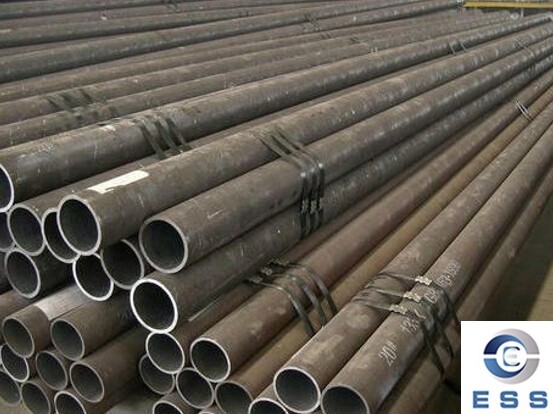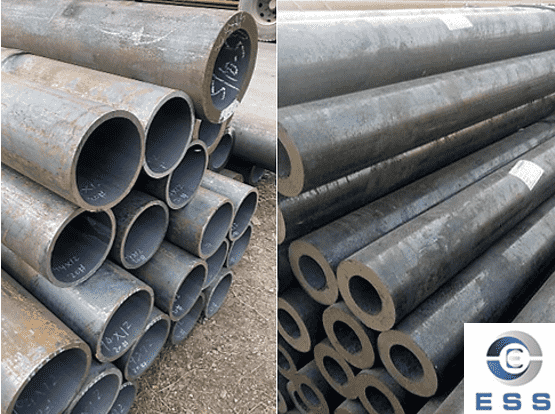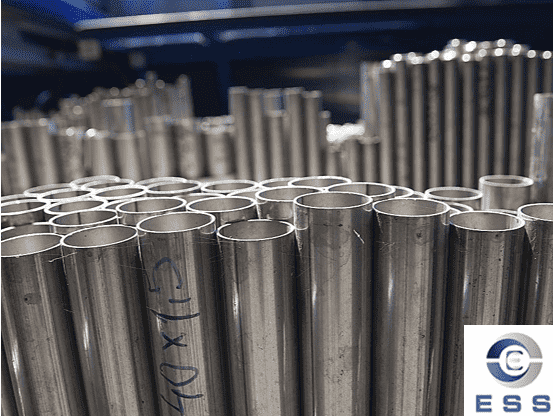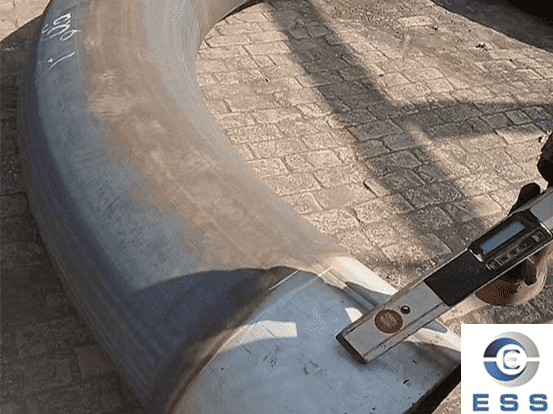The service life of mild
steel tube is usually between 20 and 30 years, and the specific service
life depends on the use environment and maintenance.

The service life of mild steel tube is
affected by many factors, mainly including environmental conditions, usage,
manufacturing process and maintenance:
1. Environmental conditions
Corrosive medium: Mild steel tube is easily corroded in corrosive
medium, resulting in scaling of the inner wall of the pipe, thereby reducing
the conveying capacity and service life. For example, when the pH value of the
medium is low, the roughness of the pipe wall will increase, affecting the
service life of the pipe.
Temperature and humidity: In high temperature and humid environment,
the hardness and strength of steel will decrease, and it will be easily
corroded, thus shortening the service life.
2. Usage
Load conditions: Under high load conditions, low carbon steel is
prone to fatigue damage, thereby shortening the service life.
Maintenance: Regular inspection, repair and maintenance, such as
timely treatment of corroded parts and replacement of damaged insulation
layers, can effectively extend the service life of the pipeline.
3. Manufacturing process and maintenance
Manufacturing process: Different manufacturing
processes will lead to differences in the internal structure and performance of
low-carbon steel, which will in turn affect its service life.
Maintenance: Correct installation methods and good construction quality can
ensure that the pipes are tightly connected, reduce leakage and stress
concentration, and are conducive to extending the service life.
The methods for extending the service life of mild steel tubes
mainly include the following aspects:
1. Anti-corrosion treatment
Mild steel tubes are susceptible to
corrosion during use, so anti-corrosion treatment is the key to extending their
service life. Anti-corrosion treatment can be achieved by coating the surface
of the steel pipe with anti-corrosion coatings. These coatings have excellent
chemical stability and corrosion resistance, and can resist the erosion of
various corrosive media such as acids, alkalis, and salts. In addition, the
anti-corrosion coating can also improve the wear resistance and durability of
the steel pipe, reduce the wear and damage of the pipe, and thus extend its
service life.
2. Regular maintenance and maintenance
Regularly check the status of the steel
pipe, clean the dirt on the surface of the steel pipe in time, and avoid using
highly corrosive solutions or sharp objects to scratch the surface. During the
heating shutdown period, keep the steel pipe filled with water to prevent air
from entering and causing corrosion. For the damaged parts, you can use special
touch-up paint or nail polish to prevent the damaged parts from chemically
reacting with oxygen and corroding.
3. Choose the right material
Ordinary low-carbon steel has poor
corrosion resistance and is prone to water leakage. Therefore, you can choose
materials with better corrosion resistance, such as the upgraded anti-corrosion
diamond series products. These products are embedded with large alloy blocks
containing magnesium, aluminum, zinc, chromium and other alloys on the basis of
the normal three-layer anti-corrosion, which can absorb anti-corrosion ions in
the water, protect the steel from corrosion, and greatly extend the service life
of the steel pipe.
Summary
In a general working environment, if
properly maintained, the service life of mild steel tubes can reach 20 to 30
years. However, if the working environment is relatively harsh, such as
the presence of strong corrosive media, high pressure fluctuations, etc., the
service life may be shortened. Regular maintenance can effectively extend the service life of mild
steel tubes, ensure their safe operation and reduce maintenance costs.













 Eastern Steel Manufacturing Co.,Ltd not only improve product production and sales services, but also provide additional value-added services. As long as you need, we can complete your specific needs together.
Eastern Steel Manufacturing Co.,Ltd not only improve product production and sales services, but also provide additional value-added services. As long as you need, we can complete your specific needs together.










